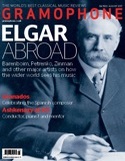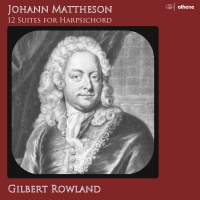Texte paru dans: / Appeared in: |
|
|
Outil de traduction (Très approximatif) |
|
|
Reviewer:
Lindsay Kemp
They turn out to be worth reviving. Skilfully made and loosely varied in form and texture, they encompass elegant broken-chord allemandes, a brash concerto-like Prelude (No 7), delicate and imaginative sarabandes such as that of No 8 and a full-textured Air with Doubles in No 6 reminiscent of the ‘Harmonious Blacksmith’. And if they come across as a touch ordinary at first, I found them growing on me as Mattheson’s personality became more apparent. There is a charm about the way his music sometimes makes quaint little stops and starts, and he even reveals a sense of good humour if the perhaps deliberately bad fugue that opens No 11 is anything to go by. I’ve not come across a boutade before but I like the one in Suite No 9. Gilbert Rowland’s playing is assured, robust and reliable, and if his tread is a sometimes a touch earthbound, maybe such moments reflect dips in Mattheson’s own creative concentration; certainly he is more successfully fired up by movements such as the ouvertures and the driving gigues of Nos 7 and 8. The fact that he is not note-perfect wouldn’t really matter were it not irritating to think that the small smudges he makes could easily have been repaired. The French-style harpsichord is deep-toned and clear if lacking in distinctive character. A tangier set was recorded by Colin Booth for Soundboard in 2007, more careful in places but in general more rhetorically eventful, while Cristiano Holtz’s sprightlier and slicker single disc of seven suites (not all complete) for Ramée from 2006 is a worthwhile option if three hours of Mattheson suites seems a daunting dose. |
|




